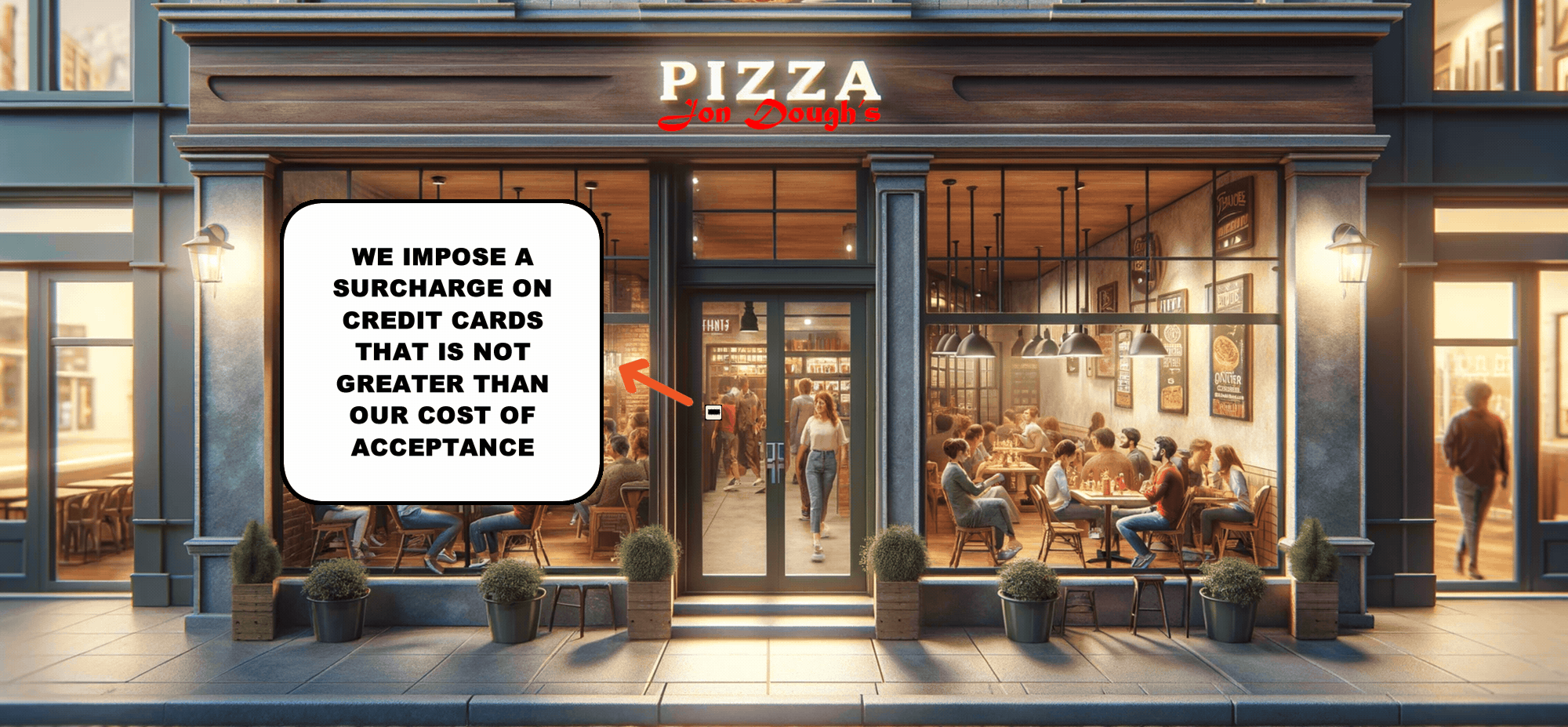In today's highly competitive restaurant industry, managing costs and maintaining profitability are constant challenges. One emerging trend that offers relief to tight profit margins is the implementation of credit surcharges. This article explores the history, legality, and current trends of credit surcharges, and how this option can be a viable solution for restaurant owners.
The History of Credit Surcharges
Credit surcharges have been a topic of debate for many years. Initially, major credit card companies prohibited merchants from adding surcharges to credit card transactions. However, following a series of legal battles, including notable settlements such as the 2013 class-action lawsuit against Visa and MasterCard, merchants in the United States gained the right to impose surcharges on credit card transactions. These settlements allowed businesses to offset the costs associated with credit card processing, which can be significant, especially for small and medium-sized enterprises.
Legal Framework and Compliance
While the ability to add surcharges has been established, it is crucial for restaurant owners to understand the legal framework surrounding these fees. Not all states permit credit surcharges, and those that do often have strict guidelines to ensure transparency and fairness. As of now, states like California, Colorado, Connecticut, Florida, Kansas, Maine, Massachusetts, New York, Oklahoma, and Texas have varying restrictions on the practice. Many of these state’s laws have been found unconstitutional. Please refer to local regulations.
To legally implement a credit surcharge, restaurant owners must follow specific requirements:
- Notification: Merchants must notify credit card companies, such as Visa and MasterCard, before implementing surcharges.
- Transparency: Clear signage must be displayed at the point of entry, point of sale, and on receipts to inform customers about the surcharge.

Trends in Credit Surcharges
The adoption of credit surcharges has been steadily increasing, particularly among small businesses and restaurants. With the rise of digital payments and the ongoing challenges posed by the COVID-19 pandemic, more restaurant owners are exploring surcharges as a way to manage expenses. By passing the cost of credit card processing fees to consumers customers, restaurants can protect their profit margins without raising prices across the board.
Additionally, advances in POS (Point of Sale) technology have made it easier for restaurants to implement and manage surcharges seamlessly. Modern POS systems can automatically calculate and apply the surcharge, ensuring compliance with legal requirements and enhancing operational efficiency.
The Business Case for Credit Surcharges
For restaurant owners, the decision to implement a credit surcharge should be carefully considered. The primary advantage is the potential for significant cost savings. Credit card processing fees typically range from 1.5% to 3.5% per transaction. Over time, these fees can add up, eating into already slim profit margins. By passing these costs on to customers, restaurants can maintain their pricing structure while preserving profitability.
Moreover, credit surcharges can encourage customers to use alternative payment methods, such as cash or debit cards, which have lower processing fees. This shift can further reduce costs for restaurant owners.
Evaluating a POS System with Built-in Surcharge Handling
When considering the implementation of credit surcharges, it is essential to choose a POS system that can handle these fees efficiently. Here are some factors to keep in mind:
- Debit Card Identification: The POS system should be able to distinguish between credit and debit card transactions automatically. This ensures that surcharges are only applied to credit card transactions, in compliance with legal requirements.
- Transparency Features: Look for a system that can display surcharge information clearly at the point of sale and on receipts.
- Ease of Use: The system should be user-friendly, allowing staff to explain surcharges to customers easily and manage transactions smoothly.
- Integration: Ensure the POS system integrates well with other business tools, such as accounting software and customer loyalty programs.
Thrive POS with ThrivePay
Thrive POS, with its integrated ThrivePay system, offers a seamless solution for managing credit surcharges. ThrivePay automatically distinguishes between credit and debit card transactions, ensuring compliance with all legal requirements. Additionally, Thrive POS provides clear and transparent communication about surcharges, making it easy for both staff and consumers to understand.
Ready to explore how Thrive POS can enhance your restaurant operations and help you manage costs effectively? Discover more about Thrive POS and ThrivePay here.
Future Outlook
Credit surcharges represent a practical option for restaurant owners looking to navigate the complexities of modern payment processing. While the implementation of surcharges requires careful adherence to legal guidelines, the benefits can be substantial. By leveraging this strategy and choosing a reliable POS system, restaurants can better manage their costs, maintain competitive pricing, and ultimately improve their bottom line.
As the restaurant industry continues to evolve, staying informed about emerging trends and best practices, such as credit surcharges, is essential for sustained success.

